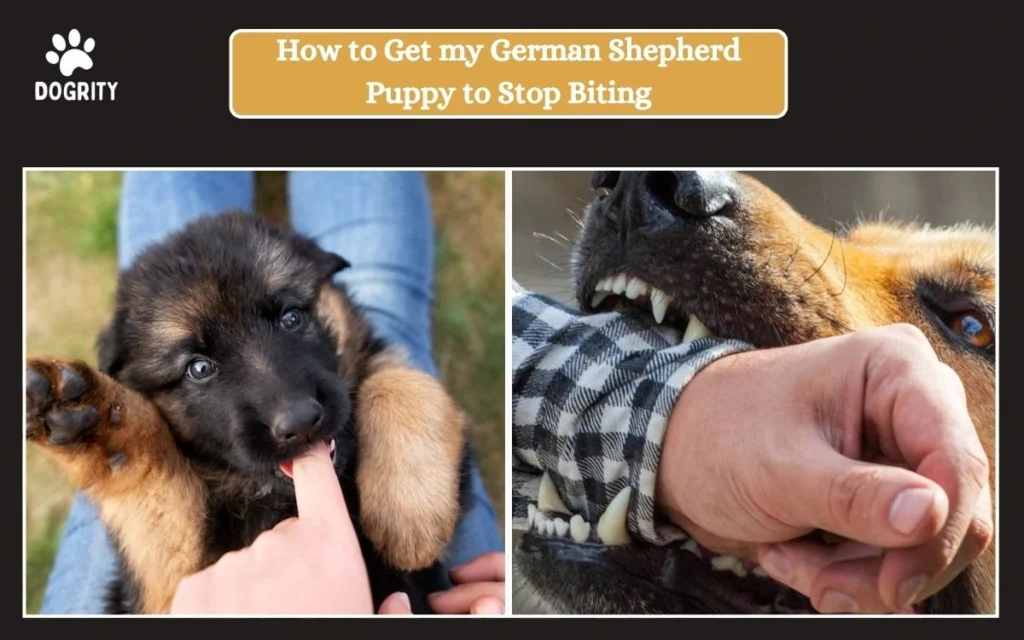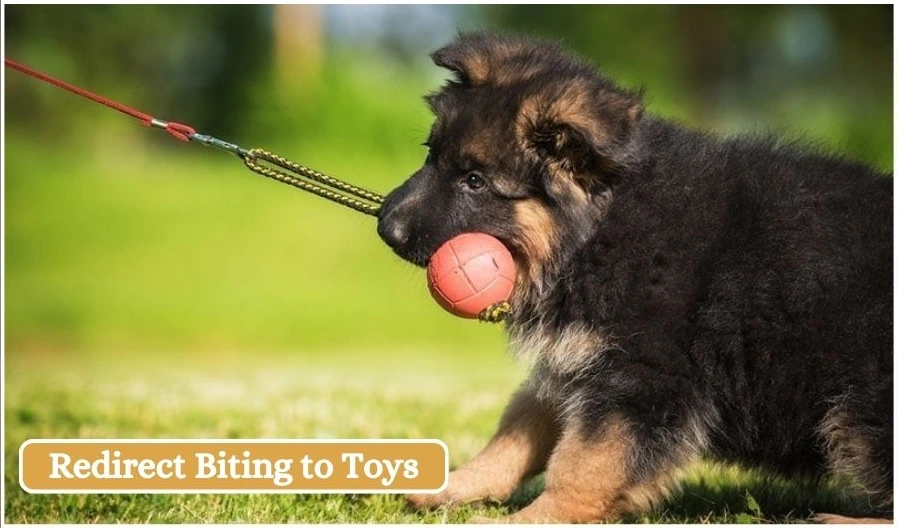how to get my german shepherd puppy to stop biting
Congratulations if you recently adopted a German Shepherd puppy! German Shepherds are intelligent, loyal, and wonderful friends. Even so, just like other puppies, they have their share of challenges and biting is one of the most frequent problems I hear about.
When my German Shepherd, Max, was a puppy, I remember how overwhelmed I felt when he started nipping at my hands, ankles, and even furniture. It’s completely normal for puppies to explore the world with their mouths, but that doesn’t mean it isn’t frustrating! Fortunately, I was able to educate my Max to stop biting, and you can too, with a few pointers and constant effort. This is the method.
Understand Why Puppies Bite
Before we dive into how to stop the biting, it’s important to understand why your German Shepherd puppy bites in the first place. Puppies go through a teething phase, much like human babies. During this period, they’ll chew on anything to relieve the discomfort. Also, puppies bite during play to socialize with their littermates, so they might not understand that humans don’t play the same way.
When I realized that Max wasn’t being “naughty” but was just in a natural phase, it helped me have more patience with him.
Teach Bite Inhibition
Bite inhibition is one of the first things I worked on with Max. It’s all about teaching your puppy to control the force of their bite. Here’s how I did it:
Yelp or Say “Ouch!”
Whenever Max bit me too hard, I would make a high-pitched yelp (similar to what a littermate would do) or say “ouch” in a firm voice. This startled him, and he quickly realized that biting too hard caused me to stop playing. After a few weeks of this, he started to bite more gently.
Stop Playtime
If the biting continued, I would immediately stop playing and walk away for a few minutes. This showed Max that rough biting ended the fun, and he began to bite less frequently over time.
Consistency is key here. If you allow your puppy to bite sometimes but not others, they’ll get confused. Stick to your training plan!
Redirect Biting to Toys
German Shepherds are highly intelligent and active dogs, and they need a lot of mental stimulation. One tip that was useful was to give Max lots of things suitable for your age to keep his mouth busy.
When Max started to bite my hand or ankles, I would immediately give him a chew toy instead. This taught him that biting the toy was acceptable, while biting me was not. A variety of textures can be great for teething puppies, so I tried different types of toys until I found ones he loved.
Teach Commands Like “No Bite”
Once Max understood that biting me wasn’t acceptable, I started teaching him a “no bite” command. I would politely tell the max “no bite” and give him a treat or toy in exchange if he tried to bite. Max responded very well to treats given for good carry out!
Always remember that support is very important for dogs. Make sure to give your puppy attention, treats, or compliments anytime they behave well. German Shepherds have a strong need to be loved and will pick up on human expectations fast.
Ensure Plenty of Exercise
A bored puppy is a bitey puppy! German Shepherds, especially as puppies, have a lot of energy to burn. If they’re not getting enough exercise, they may start biting out of boredom or frustration. I found that giving Max plenty of time to run around and play made him much calmer at home.
His mental and physical weariness could be achieved by regular walks, catch games, and even some basic behavior lessons. Clearly, there was bigger biting activity if I missed a day.
Stay Patient and Consistent
Training a puppy takes time, and it’s easy to feel frustrated when your German Shepherd keeps biting despite your efforts.I know; I’ve been there. However, it’s important to continue training consistently and to be friendly with your puppy. Remember that this is only a temporary stage that they will outgrow with the correct support.
Looking back, I’m so glad I put in the effort early on. After years of strict education, Max has developed into a loving, well-mannered dog that never bites. Our bond continues to grow stronger.
Final Thoughts
While it’s not always simple, it is possible to train a German Shepherd puppy to stop biting if you take the proper approach. Positive changes can be observed quickly if you understand why your puppy bites, teach bite restriction, correct their behavior, and keep up stability.
If you’re currently dealing with a biting puppy, don’t lose hope! I’ve been through it, and I know how challenging it can be. But with patience and effort, you’ll get there, and your German Shepherd will grow into a wonderful companion.








